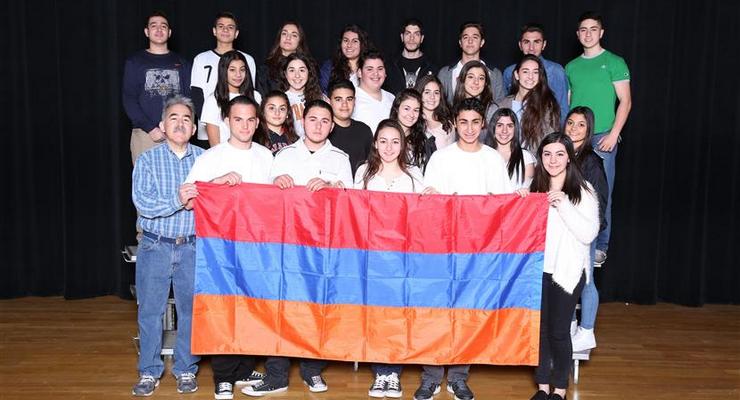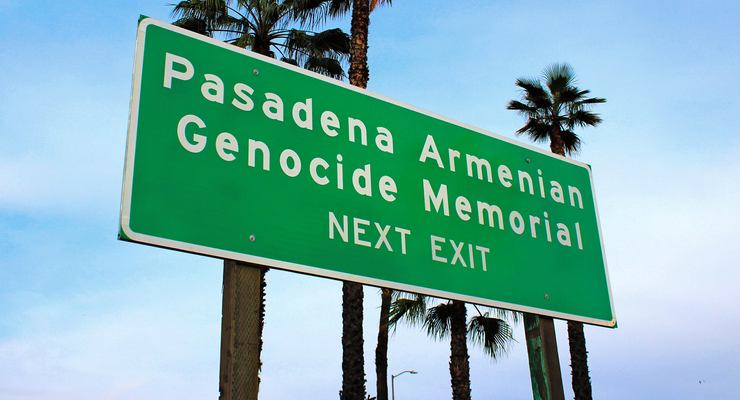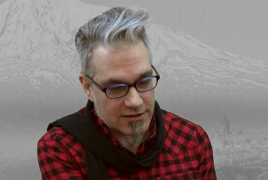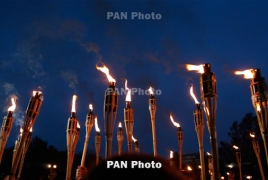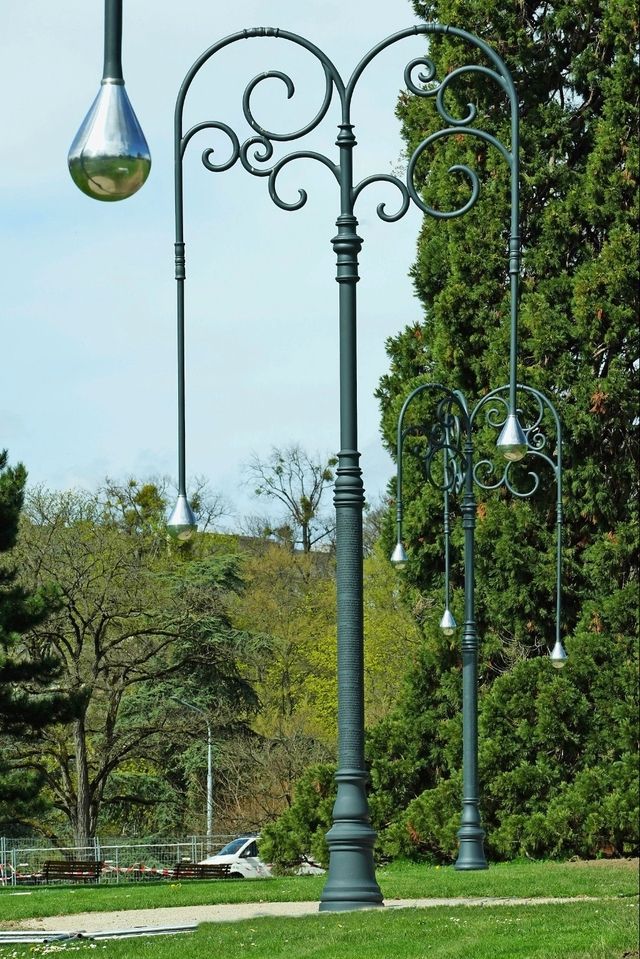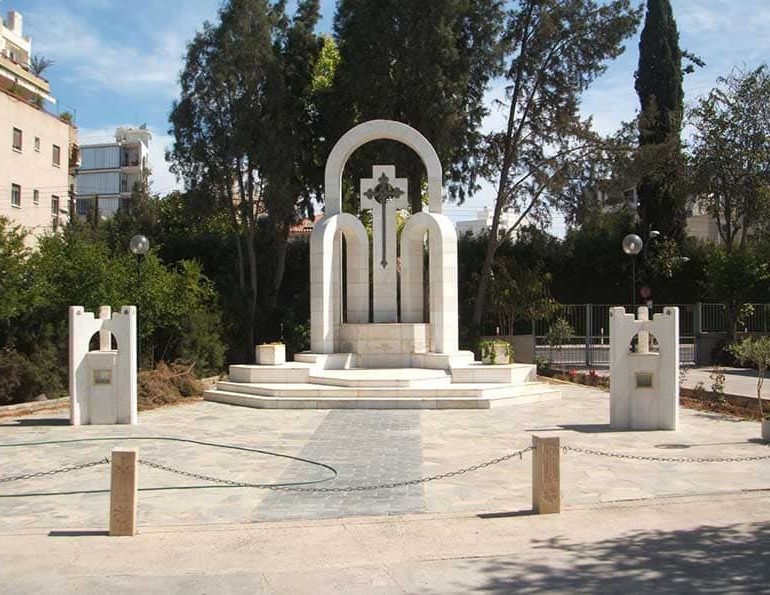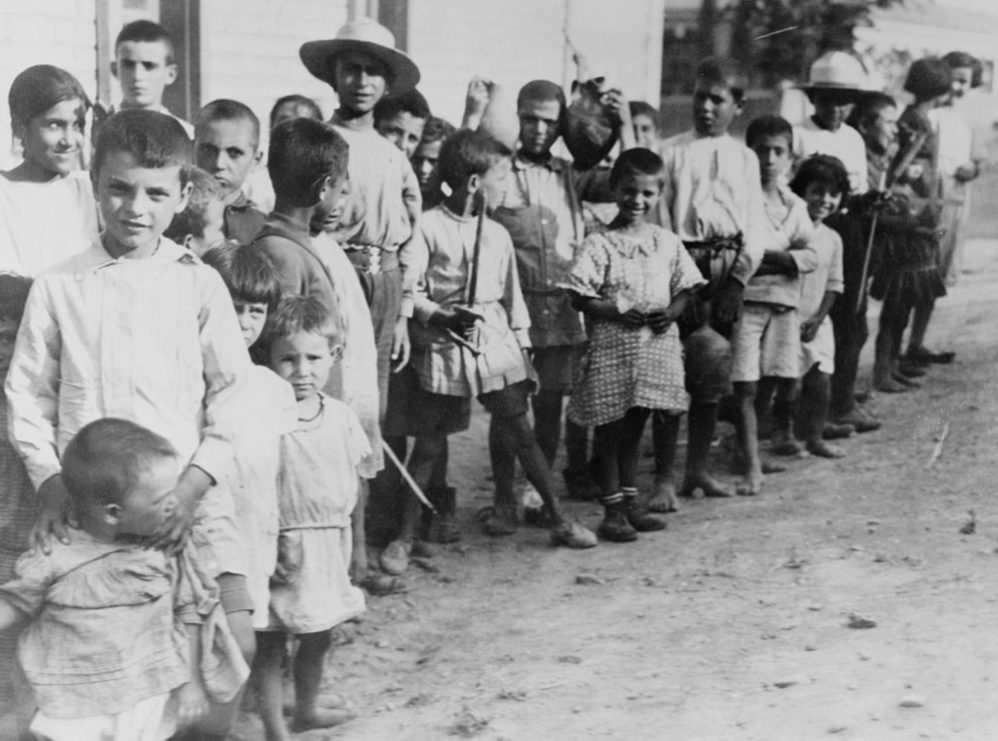The Federalist
April 23 2018
Why President Trump Should Recognize The Armenian Genocide
Despite the passage of a century, the Turkish government seems to have grown more resistant to hearing that its Ottoman forebears had anything to do with the mass killings of Armenians.
By Stella Morabito
April 23, 2018
If President Trump recognizes the Armenian genocide by specifically using the word “genocide” in his April 24 proclamation, he would send a strong signal to the world that America is unequivocally on the side of historical truth and the protection of innocent life. He would be only the second president, after Ronald Reagan, to do so boldly and officially.
Every year on April 24 there are memorial services, marches, and media reminders of the genocide of 1.5 million Armenians at the hands of the Ottoman Empire. The beginning of the massacres is marked on that date in 1915, when hundreds of Armenian community leaders, merchants, and intellectuals were rounded up and killed in Constantinople.
That horrific incident was followed by the sorts of activities you’d expect of a government intent on mass slaughter of an ethnic group: propaganda campaigns intended to vilify Armenians in the eyes of their Turkish neighbors; conscription of all Armenian men ages 20-45 to deprive their families of their protection; gun confiscation programs; the release of violent criminals from prisons in order to form “chetes” or killing squads targeting Armenians; mass deportations and death marches into the Syrian desert with little to no food or water; and much more. I’ve written in detail about the genocide for The Federalist.
As the granddaughter of genocide survivors, I’ve always been well aware of those atrocities and hardships suffered a century ago. But most Americans are completely unaware, and the ignorance is growing. This is especially the case as our education establishment treats any serious study of history as, well, a thing of the past.
Official U.S. Recognition of This Genocide Has Been Thorny
For the United States, where many Armenian refugees settled, official government recognition of the genocide has never been a simple matter of acknowledging the historical record. Several American presidents in recent history issued commemorative proclamations that mourn the massacres and the tragedy of the killings, but—with the notable exception of Reagan—do not call it a genocide.
Turkey has been a key U.S. ally, and it is deeply offended by any mention of the genocide, which has long been a taboo subject in that nation. This is in stark contrast to Germany’s reckoning with its Nazi past and responsibility for the Holocaust shortly after World War II. But despite the passage of a century, the Turkish government seems to have grown ever more resistant to hearing that its Ottoman forebears had anything to do with the mass killings.
President Obama’s handling of the situation is perhaps the clearest exhibit of just how difficult it has been for recent U.S. presidents to utter the word “genocide” in reference to the Ottoman extermination of the Armenian population in Turkey. In his 2008 presidential campaign, Obama openly pledged that if elected he would call the killings a genocide.
He never kept that promise, even during the 2015 centennial marked by major events and memorial events around the nation as well as in Washington DC. Today two of his top aides—foreign policy advisor Ben Rhodes and United Nations Ambassador Samantha Power—have said the Obama administration’s judgment call on this was a mistake.
Reagan called the mass killing of Armenians a genocide in an official proclamation in 1981. In addition to that, there have been two joint resolutions of Congress recognizing the genocide, passed in 1975 and in 1984, as well as one resolution of the House of Representatives, passed in 1996. Also, 48 U.S. state legislatures have condemned the mass killings as genocide. (I would guess the Alabama and Mississippi legislatures will soon come around.)
Trading Truth for an Ally
Turkey’s entry into the North Atlantic Treaty Organization in 1952 during the Cold War marked a major U.S. partnership, with both nations having a common adversary in Russia. So American presidents and foreign policy officials often take meticulous care not to offend Turkey. Hence avoiding identifying Turkey’s Ottoman predecessors as mass killers of 1.5 million Armenians.
One might think that with the fall of the Soviet Union in 1991 and the rise of Turkey’s Islamist president Tayyip Erdogan, who habitually extols the glories of the Ottoman Empire and supports the Muslim Brotherhood, a U.S. president might be less hesitant to recognize the Armenian genocide. But U.S. foreign policy officials generally defer to pressure from the Turkish lobby because they continue to see a modern and secularized Turkey as an indispensable ally with a critical geo-strategic position. A recent op-ed in the Washington Times made that case.
With more nations acknowledging the Armenian genocide, Turkey’s situation may be getting more fragile. Erdogan was especially offended by Germany’s 2016 statement of recognition. He directly threatened to leave Europe “to your own worries” if the European Union continued to pressure Turkey on genocide denial and stated “we will never accept the accusations of genocide.” It’s difficult to tell how the Trump administration might calculate its decision.
Massacres Versus Genocide: What’s the Difference?
While the Turkish government doesn’t deny that hundreds of thousands of Armenians were killed under Ottoman rule, it rejects the term “genocide,” in large part as a matter of national pride. I think this is especially true considering President Erdogan’s unabashed reverence and nostalgia for the old Ottoman Empire. Those who try to bring back the perceived glories of an old era aren’t going to want to stain it.
Also, the term “genocide” was coined in 1944 by Raphael Lemkin, a Holocaust survivor who initiated the U.N. convention on genocide. No doubt Turkey has no interest in being called out before the U.N. on the matter.
But in addition to the perceived humiliations acknowledgement would bring, Turkey has another reason for objecting: the fear of having to pay reparations to descendants of the victims. In addition to the loss of life, much wealth and property was seized, including Armenian churches, monasteries, businesses, farms, and homes. A prime example of reparations for genocide was the post-WWII Israeli-West German agreement of 1952, in which West Germany agreed to pay reparations to Holocaust survivors and relatives of victims.
The Turkish government has made a number of claims in its denial, primarily stating that it doesn’t measure up to the U.N. definition of genocide. The U.N. Convention on genocide defines it as violent acts “committed with intent to destroy, in whole or in part, a national, ethnical, racial or religious group.” The Turkish government states there was no “intent,” for genocide, no master plan; and that the deaths were basically the regrettable results of the ravages of World War I, in which both Turks and Armenians suffered. The Turks also rationalize the mass deportations of Armenians by stating the Armenians basically colluded with the Russians, thus rendering them “subject to relocation.”
But Turkey’s rationalizations defy voluminous evidence and scholarship on the matter. Were the Armenians simply casualties of war? No. In fact, wars serve as cover for genocide. World War I served as cover for the Armenian genocide, just as World War II served as cover for the Holocaust.
In a conversation at the German Embassy in Istanbul just before the genocide was launched, Ottoman leader Talat Pasha is quoted as stating: “Turkey is taking advantage of the war in order to thoroughly liquidate (grundlich aufzaumen) its internal foes, i.e., the indigenous Christians, without being thereby disturbed by foreign intervention.” Then in 1918: “The question is settled. There are no more Armenians.”
Eminent Turkish scholars such as Hrant Dink (assassinated in 2007) and Taner Aksam have also called for recognizing the genocide. As Aksam has noted, “If you want to have a democracy in our country, you have to face your own history. Without an honest reckoning of what happened in the past, you cannot create a peaceful future.”
Resisting the Facts of History Is Always Dangerous
As President Trump stated in his recognition of the Holocaust last year, “We must never, ever shrink from telling the truth about evil in our time. Evil is always seeking to wage war about the innocent and to destroy all that is good and beautiful about our common humanity, but evil can only thrive in darkness.”
‘We must never, ever shrink from telling the truth about evil in our time.’
The truth will always out. The question is always the cost of silence in the face of evil because shrinking from the truth encourages the perpetuation of evil. Consider how Adolf Hitler was encouraged by that sort of silence when he commanded deaths of all “men, women, and children of Polish derivation and language” in his 1939 invasion of Poland. He rationalized: “Who, after all, today speaks of the annihilation of the Armenians?”
But as more nations recognize the Armenian genocide, Turkey’s stubborn denials grow ever less tenable. There are virtually no living witnesses of these events that occurred a century ago. It’s past time for Turkey to simply step back, look at the big picture and say: Yes, it happened. It’s part of the historical record, and it was a crime against humanity. This truth alone can make Turkey a freer, more peaceful, and happier place in the long run.
President Trump should help make that happen. Otherwise, if we keep kicking the can down the road, the road eventually leads to forgetting. And to forget such harrowing history is to invite it to repeat itself.
Stella Morabito is a senior contributor to The Federalist










